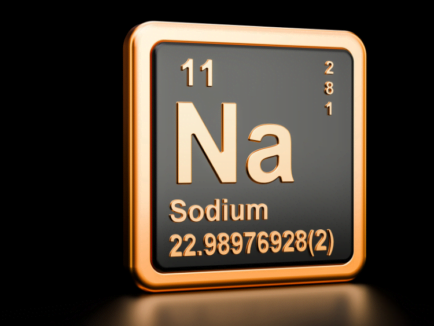Swedish battery and storage specialist Northvolt has developed a sodium-ion battery it claims to be a “cost-effective’’ alternative in energy storage to lithium-ion or other technologies.
The cell has been validated for an energy density of over 160 watt-hours per kilogram at the company’s R&D centre Northvolt Labs in the Swedish city of Västerås.
“The world has put high hopes on sodium-ion, and I’m very pleased to say that we’ve developed a technology that will enable its widespread deployment to accelerate the energy transition,” Northvolt CEO Peter Carlsson said.
“It’s an important milestone for Northvolt’s market proposition, but battery technology like this is also crucial to reach global sustainability goals, by making electrification more cost-efficient, sustainable and accessible worldwide.”
Northvolt’s launch comes after US start-up Peak Energy led by two Tesla veterans last month had said it plans to roll out its own version of sodium-ion batteries by 2025 and open a giga-scale manufacturing plant the following year – claiming it could halve the cost of energy storage for wind and solar power.
The Swedish company said its cell – which was developed together with research partner Altris – is safer, more cost-effective and sustainable than ones based on nickel, manganese, cobalt or iron phosphate chemistries. It is also produced with minerals such as iron and sodium that are abundant on global markets.
The cell is based on a hard carbon anode and a so-called ‘Prussian White-based cathode’, and is free from lithium, nickel, cobalt and graphite, Northvolt said. The company plans be the first to industrialise Prussian White-based batteries and bring them to commercial markets.
The technology with its low cost and safety at high temperatures is particularly attractive for energy storage solutions in markets such as India, the Middle East and Africa, Northvolt said. It can be produced with locally sourced materials, which enables the development of regional manufacturing that is independent of traditional battery value chains.
“Our sodium-ion technology delivers the performance required to enable energy storage with longer duration than alternative battery chemistries, at a lower cost, thereby opening new pathways to deploying renewable power generation,” Carlsson said.
“The potential of sodium-ion in this market alone will make a tremendous impact in the drive towards global electrification.”
While Northvolt at first has designed its sodium-ion cell primarily for energy storage, subsequent generations of the technology delivering higher energy density could open up opportunities for electric mobility as well, the company said.
The Swedish company’s product portfolio currently includes lithium-ion battery cells for automotive consumers, and energy-dense lithium-metal battery technology under development for aviation and high-performance vehicles at Cuberg, a Northvolt unit based in California.









